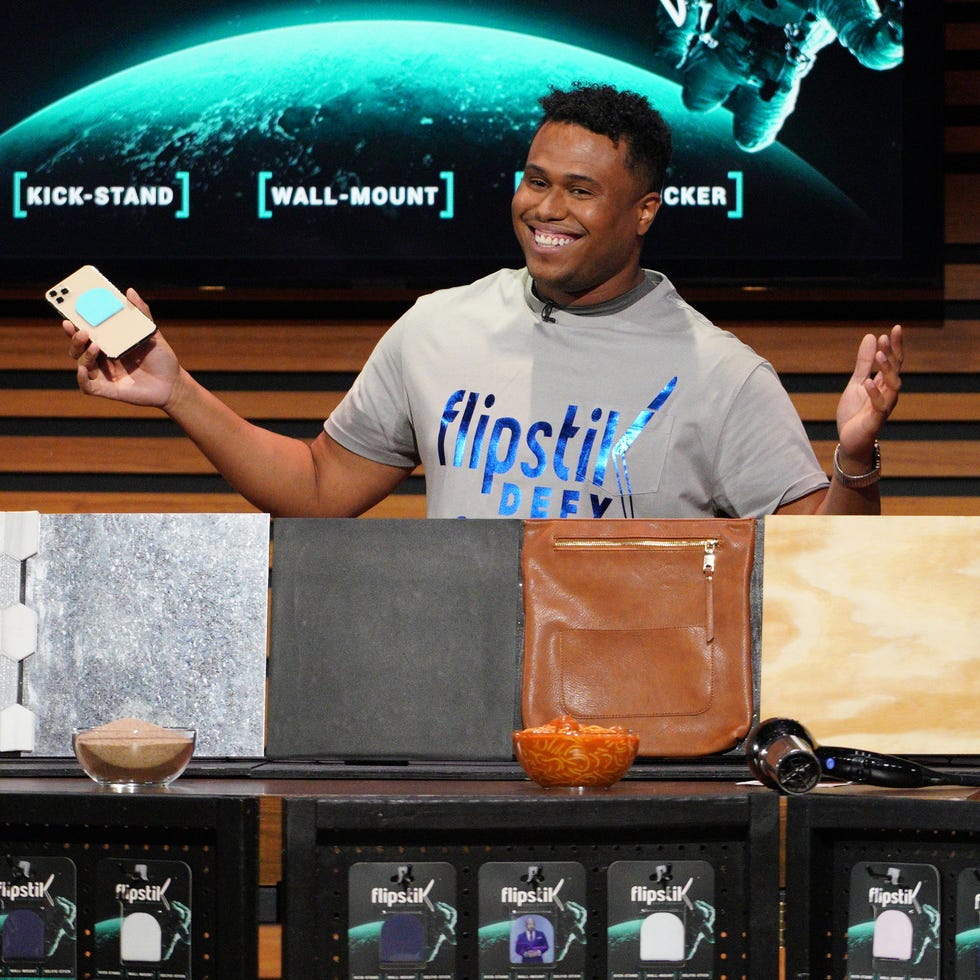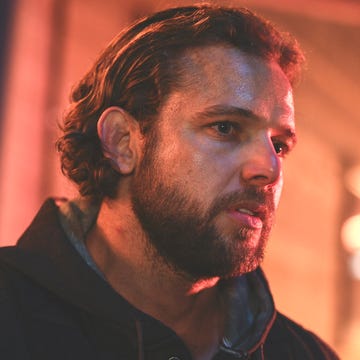You have to fill out an online application.
 Getty Images
Getty ImagesOr attend an open casting call.
 Michael Desmond//Getty Images
Michael Desmond//Getty ImagesWhile preparing for a new season, the show sets up in-person events around the country to meet with entrepreneurs. Each business is allowed to give a short presentation. If they impress the producers, they advance to the next stage of the casting process.
Advertisement - Continue Reading Below
Sometimes producers recruit companies.
 Eddy Chen//Getty Images
Eddy Chen//Getty ImagesThe Shark Tank team keeps a close eye on crowdfunding sites, like Kickstarter, and attends trade shows to scout entrepreneurs who they think could make a splash on the show.
You must be at least 18 years old.
 Michael Desmond//Getty Images
Michael Desmond//Getty ImagesAdvertisement - Continue Reading Below
No politicians allowed.
 Christopher Willard//Getty Images
Christopher Willard//Getty ImagesAccording to the application, candidates for public office will not be considered. Applicants must also agree to not become a political candidate for one year after the last episode of their season airs.
You must undergo a background check.
 Christopher Willard//Getty Images
Christopher Willard//Getty ImagesAdvertisement - Continue Reading Below
You have to put in a lot of work to get cast.
 Eric McCandless//Getty Images
Eric McCandless//Getty ImagesAccording to one former contestant, it doesn't matter whether you apply online or through an in-person pitch event — the vetting process is thorough. "It took many more rounds and way more work than I envisioned (tons of paperwork, video submissions, prep with team + wife). After a bunch of hurdles, we were invited to film in LA," Dave Vasen shared on Medium in a 2016.
Don't contact a shark before taping.
 Kelsey McNeal//Getty Images
Kelsey McNeal//Getty ImagesTo keep things fair, companies can't make any contact with the investors beforehand. So if you want to be cast, sliding into Lori's DMs isn't the best idea. "When you walk down that hallway, the sharks are learning about you and your business for the very first time," Vasen shared on Medium.
Advertisement - Continue Reading Below
Being cast doesn't guarantee being on TV.
 Beth Dubber//Getty Images
Beth Dubber//Getty ImagesBusiness owners are warned about this in advance. "This season, the show filmed just 158 pitches, and will air only 88 of them, four each episode," executive producer Clay Newbill told USA Today in 2019.
Filming can take up to two hours.
 Getty Images
Getty ImagesThat's right: The eight-minute segment you see on TV is much longer in real life. The producers edit each company's time in the Tank down, often cutting any unusable parts, like curses or moments when the sharks yell over each other.
Advertisement - Continue Reading Below
Every taping begins with a lengthy stare down.
 Kelsey McNeal//Getty Images
Kelsey McNeal//Getty ImagesWhen a business owner enters the Tank, there's a painfully awkward moment when the sharks stare at them. Unfortunately for the entrepreneurs, this clip isn't made with editing magic. It's very real and involves a full minute of silence as the cameras capture every angle.
Sorry, there are no re-dos.
 Christopher Willard//Getty Images
Christopher Willard//Getty ImagesEach entrepreneur gets one chance and one chance only. "If you go out there and forget something, there [are] no do-overs," Newbill told USA Today. "We don't stop rolling until a few minutes after you've exited the set. The only time we'll stop is if somebody's mic goes out or a light goes out, but that happens once or twice [per season]."
Advertisement - Continue Reading Below
You have to write your own pitch.
 Eric McCandless//Getty Images
Eric McCandless//Getty ImagesEntrepreneurs are given lots of creative freedom for their big moment. Although they write their own scripts, producers are allowed to make small suggestions to make everything more TV-friendly.
You have to provide your own costumes and props.
 Michael Desmond//Getty Images
Michael Desmond//Getty ImagesAdvertisement - Continue Reading Below
But don't go overboard.
 Tyler Golden//Getty Images
Tyler Golden//Getty ImagesProducers have the right to reject props that seem impractical or unsafe — don't worry, pets are welcome! Some examples of things that have been denied in the past include an actual elephant, a full-size food truck and hundreds of gallons of water for a flotation tank.
Sharks are more lenient with smaller asks.
 Christopher Willard//Getty Images
Christopher Willard//Getty Images"If it's a relatively small deal, let's say $50,000 or $70,000, a lot of money, but relatively small compared to some of the big ones we make, and there's a kid or somebody that's a feel-good story, Daymond [is more likely to give them a deal]," Mark told AOL. It makes for good TV and helps out someone deserving. A true win-win!
Advertisement - Continue Reading Below
You don't get to hear what producers are saying to the sharks.
 Christopher Willard//Getty Images
Christopher Willard//Getty ImagesSharks wear hidden earpieces so that producers can communicate with them as the cameras are rolling. While they don't know anything about the business owner in advance, production can prompt sharks to ask questions that'll make the episode more exciting and emotional.
You can't rely on your backstory to land a deal.
 Eric McCandless//Getty Images
Eric McCandless//Getty ImagesSome sharks are turned off to anything too emotional, so a fine line must be walked between showing personality and getting down to business. "The more you try to create stuff to kind of, you know, divert my attention, the worse it is," Mark told ABC News.
Advertisement - Continue Reading Below
Children are treated (almost) the same as the adults.
 Eric McCandless//Getty Images
Eric McCandless//Getty ImagesWhile the sharks definitely don't want to be mean to kids, they're still in the Tank. That means they have to prepare for potential rejection and criticism. "We don't handle them any differently than we do (adult) entrepreneurs," Newbill told USA Today.
You must know your company information.
 Craig Sjodin//Getty Images
Craig Sjodin//Getty ImagesYou wouldn't go into a business meeting unprepared, and the same goes for Shark Tank. Those who appear on the show should be ready to provide the investors with any numerical figure they ask for, from sales to inventory and everything in between. Drawing a blank during a pitch almost guarantees that they'll all be "out."
Advertisement - Continue Reading Below
Advertisement - Continue Reading Below
Advertisement - Continue Reading Below































